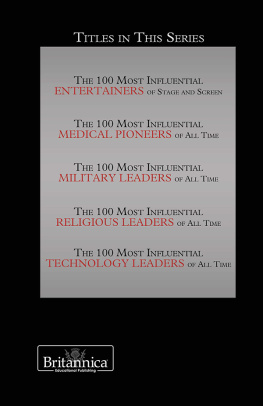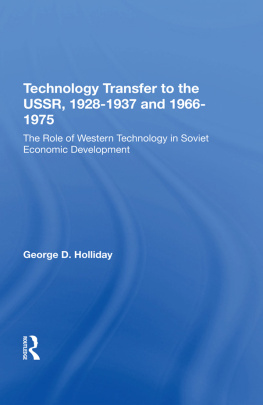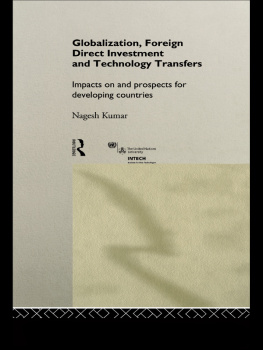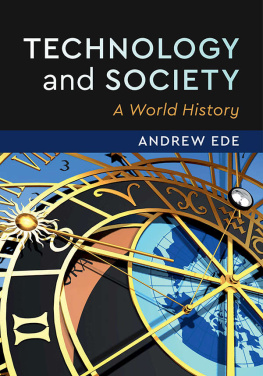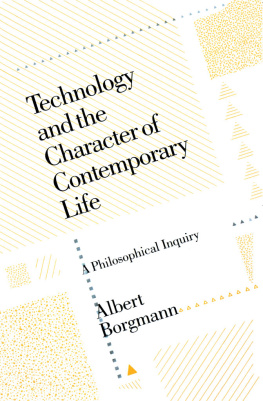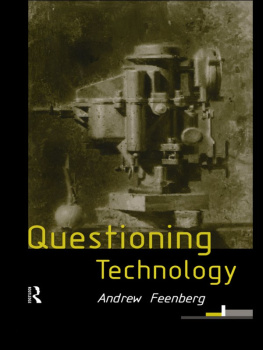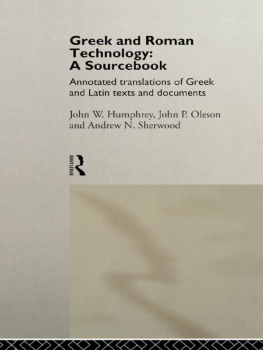TECHNOLOGY & EMPIRE
GEORGE GRANT

Copyright 1969 by George Grant
All rights reserved. No part of this publication may be reproduced or transmitted in any form or by any means, electronic or mechanical, including photocopying, recording, or any information storage and retrieval system, without permission in writing from the publisher.
Published by
House of Anansi Press Limited
895 Don Mills Rd., 400-2 Park Centre
Toronto, ON, M3C 1W3
Tel. (416) 445-3333
Fax (416) 445-5967
www.anansi.ca
Distributed in Canada by
General Distribution Services Ltd.
325 Humber College Blvd.
Etobicoke, ON, M9W 7C3
Tel. (416)213-1919
Fax (416) 213-1917
E-mail cservice@genpub.com
National Library of Canada Cataloguing in Publication Data
Grant, George, 1918-1988
Technology and empire
ISBN 0-88784-514-2
1. North America Civilization 20th century.
2. Technology and civilization. I. Title.
E40.G7 970.05 C69-3686
Religion and State appeared in Queens Quarterly in 1963. Tyranny and Wisdom was first published in Social Research in 1964. Canadian Dimension printed Canadian Fate and Imperialism in 1967; its present form is a revision of that paper. The University Curriculum appeared in This Magazine Is About Schools (1967-68) and in The University Game (1968); it too has been revised. In Defense of North America was written in 1968. A Platitude was written in 1968-69, and has appeared in Saturday Night.
Cover Design: Leslie Styles
Computer illustration: Lee Wipper

We acknowledge for their financial support of our publishing program the Canada Council for the Arts, the Ontario Arts Council, and the Government of Canada through the Book Publishing Industry Development Program (BPIDP).
Printed and bound in Canada
For S.V.G. and D.B.L.
sine qua non
PREFACE
These essays are published together because they are all perspectives on what it is to live in the Great Lakes region of North America. They do not presume to be philosophy, but are written out of the study of the history of political philosophy. If they seem too austere, I would say that they were mostly written as the meaning of the English-speaking worlds part in the Vietnam war gradually presented its gorgons face. How could there be any public laughter for somebody whose life came forth from the English-speaking world, at a time when that world reached its basest point? The purpose of the art of comedy is to bring together justice and felicity. In the face of being party to that outrage one cannot hope to attempt that uniting.
The readers indulgence is required because the way I use certain key words is often made clear in one essay and then assumed elsewhere. For example, what I mean by liberalism (as a modern phenomenon) is explicitly defined only in the article on the curriculum (page 114). The phrase the universal and homogeneous state is clarified in the essay Tyranny and Wisdom (page 87) and used elsewhere in the light of that. The reading is also complicated by the fact that the essays are not arranged in the order they were written. Thus Professor Elluls definition of technique is quoted in the article on the curriculum (page 113), while my criticism of that definition is implied throughout In Defence of North America, the first essay in the book.
G. P. Grant
Dundas, 1969.
In Defence of North America
To exist as a North American is an amazing and enthralling fate. As in every historical condition, some not only have to live their fate, but also to let it come to be thought. What we have built and become in so short a time calls forth amazement in the face of its novelty, an amazement which leads to that thinking. Yet the very dynamism of the novelty enthralls us to inhibit that thinking.
It is not necessary to take sides in the argument between the ancients and moderns as to what is novelty, to recognize that we live in novelty of some kind. Western technical achievement has shaped a different civilization from any previous, and we North Americans are the most advanced in that achievement. This achievement is not something simply external to us, as so many people envision it. It is not merely an external environment which we make and choose to use as we wanta playground in which we are able to do more and more, an orchard where we can always pick variegated fruit. It moulds us in what we are, not only at the heart of our animality in the propagation and continuance of our species, but in our actions and thoughts and imaginings. Its pursuit has become our dominant activity and that dominance fashions both the public and private realms. Through that achievement we have become the heart-land of the wealthiest and most powerful empire that has yet been. We can exert our influence over a greater extent of the globe and take a greater tribute of wealth than any previously. Despite our limitations and miscalculations, we have more compelling means than any previous for putting the brand of our civilisation deeply into the flesh of others.
To have become so quickly the imperial centre of an increasingly realised technological civilisation would be bewildering for any human beings, but for North Americans particularly so. From our beginnings there has been an ambiguity for us as to who we are. To the Asians as they suffer from us, we must appear the latest wave of dominating Europeans who spread their ways around the world, claiming that those ways were not simply another civilisation, but the highest so far, and whose claim was justified in the fact of power, namely that it could only be countered by Asians who accepted the very forms which threatened them. To the Europeans also we appear as spawned by themselves: the children of some low class servants who once dared to leave the household and who now surprisingly appear as powerful and dominating neighbours masquerading as gentry, whose threat can only be minimised by teaching them a little culture. They express contempt of us as a society barren of anything but the drive to technology; yet their contempt is too obviously permeated with envy to be taken as pure.
In one sense both the Asians and Europeans are correct. Except for the community of the children of the slaves and the few Indians we have allowed just to survive, we are indeed Europeans. Imperially we turn out to the rest of the world bringing the apogee of what Europeans first invented, technological civilisation. Our first ways, in terms of which we met the new land, came with us from Europe and we have always used our continuing contact with the unfolding of that civilisation. To this day many of our shallow intellectual streams are kept flowing by their rain. It was exiled Europeans with the new physical theory who provided us with our first uses of atomic energy. Our new social science may fit us so perfectly as to seem indigenous; but behind Parsons is Weber, behind Skinner, Pavlov, behind social work and psychiatry Freud. Even in seeking some hope against the inhuman imperial system and some less sterile ground of political morality than a liberalism become the end of ideology, many of the most beautiful young turn for their humanism to so European a thinker as Marcuse. In a field as un-american as theology, the continually changing ripples of thought, by which the professionals hope to revive a dying faith, originate from some stone dropped by a European thinker.


